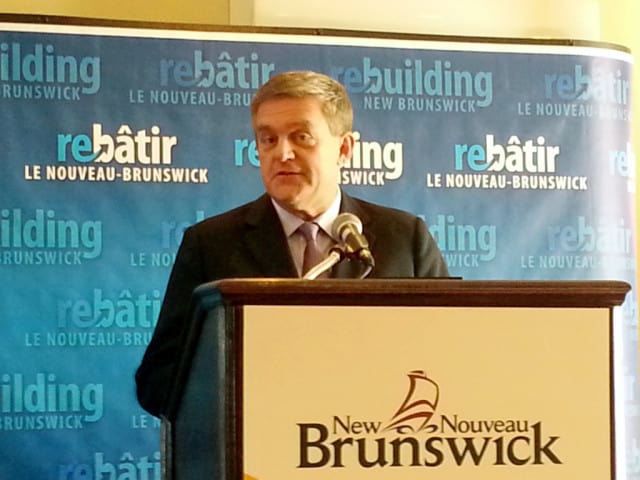CHERISE LETSON
CUP Atlantic Bureau Chief

The New Brunswick government announced a three percent tuition cap for public universities in the province for the next three years on Oct. 30.
FREDERICTON (CUP) — New Brunswick tuition might still go up next year, but now students will know by how much.
At a press conference Oct. 30, the New Brunswick government announced that they will be increasing university operating budgets by two per cent each year for the next two years. They announced an annual tuition increase cap of three per cent for the next three years for public universities with the exception of St. Thomas University in Fredericton, N.B.
“This is the first time government has provided a concrete funding commitment in advance of the yearly provincial budget announcement,” said New Brunswick Premier David Alward. “We’re committed to continuing working aggressively to return the promise of fiscal health and it is in this context that our goal must be to work together to find [ways] to address our common challenge of addressing escalating costs.”
Alward said the tuition cap would help students to plan their education.
“Adopting a tuition policy means that institutions and students can better plan their respective budgets and investments,” he said. “Public universities are critical to the socio-economic wellbeing of our province; representing key investments in our people, our economy and the future of our province.”
Minister of Post-Secondary Education, Training and Labour Jody Carr said the government will soon be announcing changes to student financial aid.
“This is all part of our strategy to rebuild New Brunswick, to invest in post-secondary and to provide support for our students to remain here in New Brunswick, to learn here in New Brunswick and to work here in New Brunswick as well,” Carr said.
Alward promised a predictable university funding agreement in the 2010 provincial election. When asked why it took so long in a media scrum afterwards, Alward said it “hasn’t always been easy.
“We’ve been working in a collaborative way with the students over the last three years to be able to get here, but again, that’s all part of the process and we’re glad … I think this is a very good day.”
University of New Brunswick Student Union Vice-President External Greg Bailey said though he’s glad students have been given something predictable, he said the increase is still being put on students.
“We appreciate that tuition’s being capped, but we think that the government needs to talk more about financial aid in order to help students,” Bailey said. “And that’s something that was notoriously absent here.”
With a provincial election coming next year, Bailey said the timing of the announcement is questionable.
“I’m just curious to why it didn’t come out earlier,” he said. “The government made commitments for a multi-year funding in post-secondary education and it seems to be a little bit late in the term since they’re looking for an election next year.”
Pat Joyce, executive director of the New Brunswick Student Alliance, said he’s glad to see that the Conservative government recognizes the need to commit to post-secondary education. However, the impending election made him also question the stability of the funding commitment.
“One of the challenges we will face when it comes to this commitment is that fact that there will be a new legislative session starting next year. There will be an election and we don’t know who will end up in office after that,” Joyce said. “So how stable this announcement is remains to be seen.”
Joyce said that students benefit from the tuition cap, however the maximum increase of three per cent annually are still too much.
“I think it presents a challenge when it comes to student debt and students staying in the province,” he said. “We certainly think it can present itself as a challenge when it comes to whether students are able to stay and work in New Brunswick after they graduate.”
Domestic students in Nova Scotia already have a three per cent tuition increase cap. Jonathan Williams, executive director of StudentsNS — an alliance of student associations in Nova Scotia — said they’ve asked for a better rate.
“We’ve currently called for a tuition freeze at zero per cent until youth employment relative to the rest of the population recovers, as a way to reflect students’ ability to pay. We’ve asked for an inflationary cap once employment has recovered,” Williams said. “A three per cent tuition growth rate would exceed these recommended rates. The best you can say is that it’s absolutely better to have a tuition cap than to not have one.”
He said with a set tuition cap, universities often raise their other fees to make up for it.
“Once a cap is set on tuition, universities generally increase fees at the maximum rate, so tuition will almost certainly grow three per cent per year,” Williams said.
Joyce said they hope the future announcement regarding student financial aid will help with the tuition increases in the province.
“We’ll certainly wait to hear what those announcements are hope that they will help to offset the increases in tuition.”
—
Photo: Cherise Letson/Canadian Press